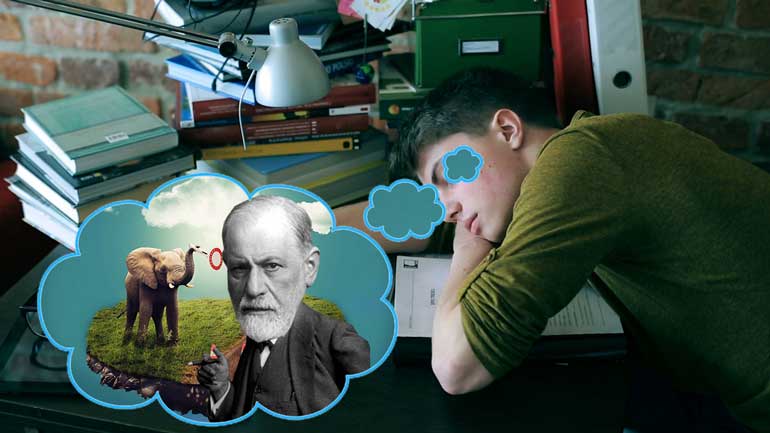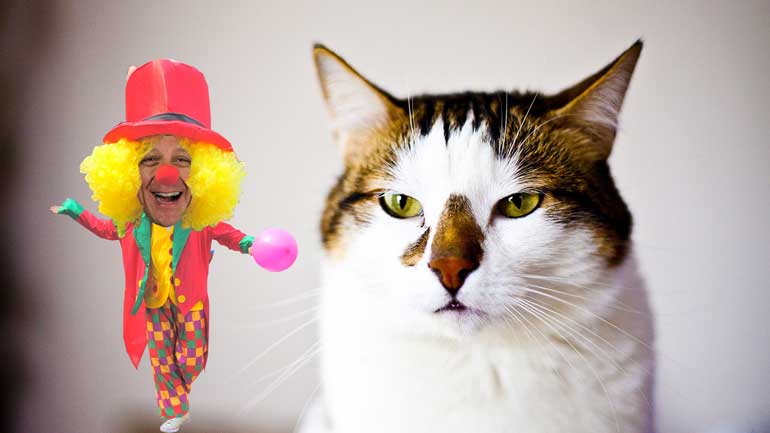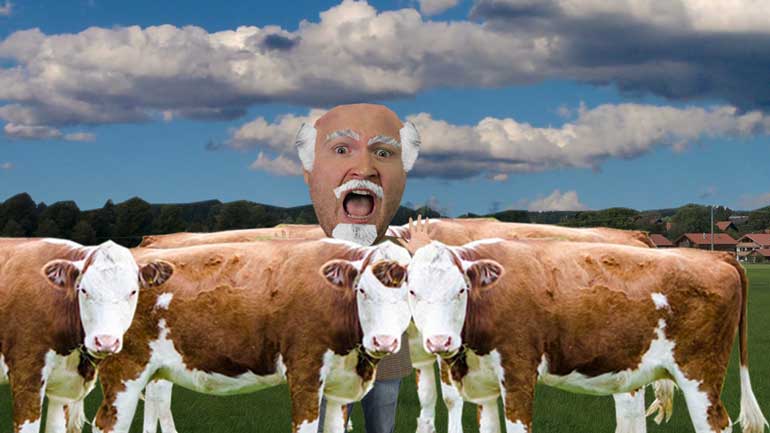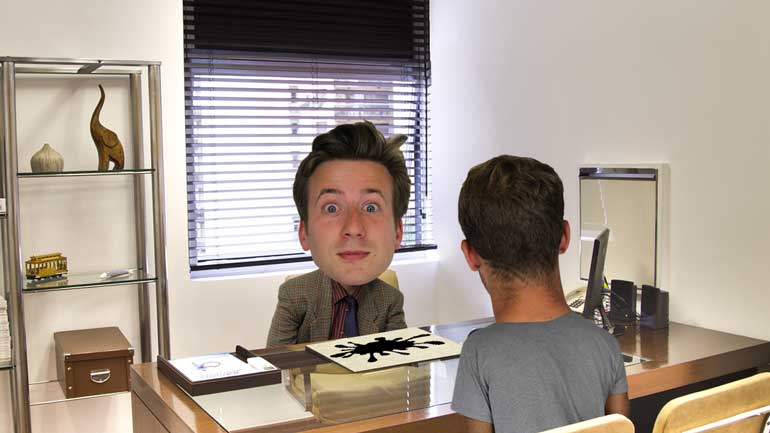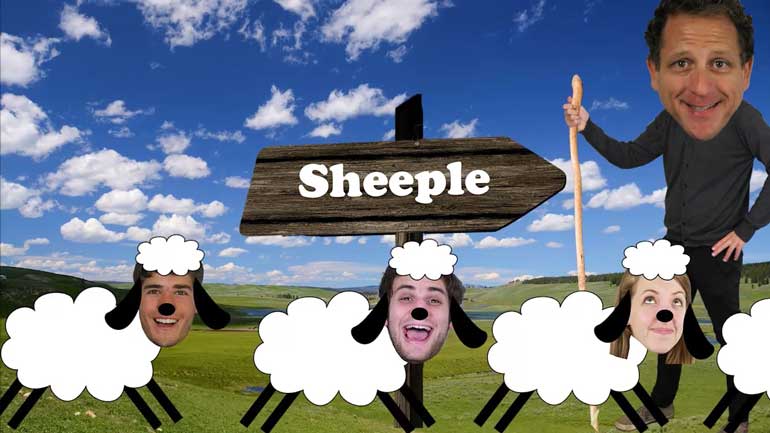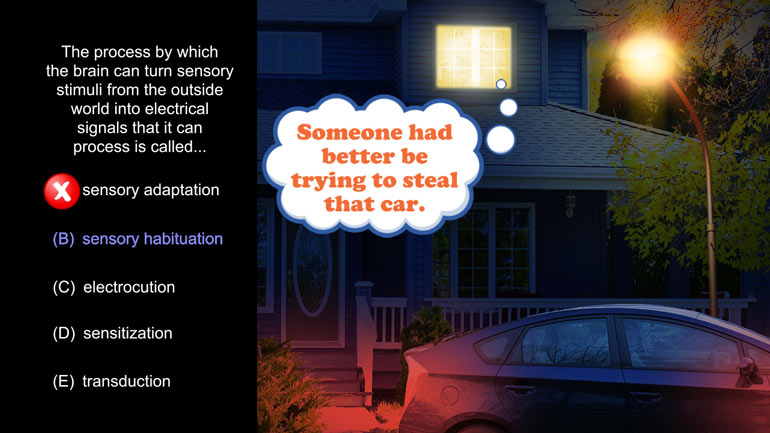ShmoopTube
Where Monty Python meets your 10th grade teacher.
Search Thousands of Shmoop Videos
Personality Videos 6 videos
AP Psychology 3.1 Personality. Which psychologist developed the idea that every culture has a collective unconscious that reflects its history and...
AP Psychology 3.3 Personality: Which is NOT one of the five personality traits posited by McCrae and Costa?
AP Psychology 1.1 Personality. According to Freud, these three parts of personality are constantly in conflict.
AP Psychology 3.3 Personality 2 Views
Share It!
Description:
AP Psychology 3.3 Personality: Which is NOT one of the five personality traits posited by McCrae and Costa?
Transcript
- 00:04
Here's your shmoop du jour brought to you by seriousness
- 00:07
something you won't find a lot of in this video come on lighten up here's [a sad cat and a clown]
- 00:12
your question which is not one of the five personality traits posited by McRae
- 00:18
and Costa and here are your potential answers all right [mumbling]
- 00:24
Not one of the five, all right people meet Costa and McRae these two smartypants
Full Transcript
- 00:29
came up with what is known as the Big Five this five factor model of [Costa and McRae sat on an opera balcony and the number 5 appears]
- 00:34
personality outlines five broad traits that are supposed to encapsulate most of
- 00:38
the primary differences in personality across individuals so what are those big
- 00:43
five well first up extraversion this trade includes characteristics like
- 00:48
excitability sociability talkativeness assertiveness expressiveness and the [examples of characteristics for extraversion]
- 00:54
tendency to seek stimulation in the company of others think extrovert versus
- 00:59
introvert solitary versus energetic outgoing versus in-going? yeah, in-going
- 01:05
well we're sticking with in going next up neuroticism this describes how
- 01:10
easy or difficult it is for one to experience unpleasant emotions like [examples of neuroticism]
- 01:13
anger anxiety depression and vulnerability the more easily irritated
- 01:17
and anxious you are the more neurotic you are and in turn the funnier a TV
- 01:21
character you make then we have agreeableness which includes traits like [doctors together giving a thumbs up]
- 01:25
trust, altruism, affect, kindness, cooperation, tenderness, modesty and all
- 01:31
that other cheesy lovey-dovey stuff all right now kiss how about [Costa and McRae sat together with a love heart outline around them]
- 01:35
conscientiousness well that describes stuff like dependability,
- 01:39
self-discipline, reliability, organizational skills and a preference
- 01:43
for planning over spontaneity all great traits to look for in a best friend or
- 01:48
a pet rock seriously they're not big on spontaneity and last but not least [car driving down an open road]
- 01:52
openness this one describes characteristics like imagination,
- 01:57
appreciation for art, adventurousness, curiosity and an overall openness to new
- 02:02
experience like surfing or skydiving or ordering pizza for shmoop headquarters [a person skydiving and a pizza slice appears]
- 02:07
in Mountain View California well it was worth a shot so which one of
- 02:12
our potential answers isn't one of the big five well it looks like B
- 02:15
seriousness the odd man out if you want an easy way to remember the big 5 just [Letter B with a green tick by the side]
- 02:20
remember the word ocean or the word OPFS which stands for order pizza for shmoop
- 02:27
all right well we're trying can't fault us for trying
Related Videos
AP Psychology 2.2 Social Psychology. Which of the following was an independent variable manipulated in Asch's research?
AP Psychology 1.1 Personality. According to Freud, these three parts of personality are constantly in conflict.
AP Psychology 1.1 Sensation and Perception. The process by which the brain can turn sensory stimuli from the outside world into electrical signals...
AP Psychology 1.1 Social Psychology. Which of the following best describes social psychology?
AP Psychology 1.1 States of Consciousness. Who conducted research on REM sleep deprivations?
